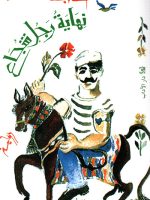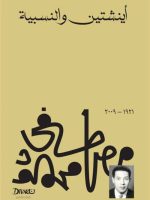Hanna Mina’s life was a mythical pastime. He read a lot, but he lived even more. Life, as one writer put it, exuded from his skin. This man, who lived through tragedy more than any other Syrian writer, was the most joyful, victorious, and hopeful. He always said, “We must rejoice, otherwise humanity will be defeated on the shores of Latakia.” Born in the green Syrian city bathed in the sea, its braids drenched with the pine trees of the Alawite Mountains, Hanna Mina first became acquainted with the world of publishing as a barber. He began sending stories to Damascene newspapers, and his name became well-known and beloved by readers who were captivated by this new, compassionate spirit and captivating popular spirit. His first novel, “The Blue Lamps,” was something new in Syrian literature, laying the realistic foundations of the Syrian novel. It sparked heated discussions in Syria, Lebanon, and Egypt. Its captivating popular spirit and simple, lively style gave it a special flavor. However, it contained a certain slackness of breath, a tendency to sneer at other times, and a rush to describe nature in a way that interrupted the vitality of the event. There were also some reportorial scenes in which Hanna was influenced by his hostility to the theory of art for art’s sake, and he devoted himself to affirming his political commitment, without much success. Criticizing all of these things was an experience of development for Hanna, who discovered his own dimensions more deeply. “The Blue Lamps” did not represent the real Hanna; it did not truly embody what he knew about Latakia: its river, its dreams, its fishermen, and its working-classes. So he devoted himself to writing the novel that is now in the reader’s hands: “The Sail and the Storm,” which is the story of the rebellious men of the sea, in their bitter daily struggle with death represented by the raging sea and treacherous storms, which they confront with their tattered sails and ancient boats. Their determination is derived from the rocks of the shores. It has a legendary, compassionate spirit, but its roots are deeply embedded in the land. “The sea is king.” This is the cry of deep respect that every sailor utters. Al-Tarousi, the story’s first hero, believes in the power of the sea as he believes in the power of women, but in the prime of his masculinity, he knows how to tame tigers. The sea, his arch-friend, draws him with its cold gray eyes to sail towards deserted islands, seducing their virginity with the youth of a knight. He has discovered the meaning of his life, and therefore feels the weight of his feet on the ground. “The Sail and the Storm,” the story of a Syrian coastal city during World War II. Hanna Mina has depicted, with amazing skill, the impact of this war and the storms it left behind in a country occupied by the French, highlighting the contradictions that preyed on a heterogeneous society. But first and foremost, it is the story of the men of the sea, the story of triumph over the harsh elements of nature, the story of human will and adventure. Hanna Mina is a pioneer of the sea in Arabic literature. His novels embody the youthfulness of pioneering and the impetuosity of his own. This is a remarkable contribution.
save
د.ا0.50The Sail and the Storm
د.ا7.00د.ا7.50
The novel depicts the struggle of man with nature and self in a time of turmoil and occupation.
Available on backorder
You may also like…
-
The Shell
د.ا8.00This novel recounts the experience of a political prisoner in a Syrian detention center, revealing the brutality of oppression and the isolation of humanity in the face of tyranny.
د.ا8.50 -
The End of a Brave Man
د.ا8.00The novel tells the story of a Syrian man’s struggle against poverty and social injustice, reflecting his sacrifice for the sake of his convictions.
د.ا8.50 -
The Tragedy of Dimitrio
د.ا6.00The novel narrates the suffering of a young man on a journey of struggle with himself and society amidst war and harsh conditions.
د.ا6.50 -
A Prostitute and a Half-Crazy
د.ا6.00A novel that reveals the inner struggles of man in a troubled society, through a relationship that combines marginality and madness.
د.ا6.50













Be the first to review “The Sail and the Storm”